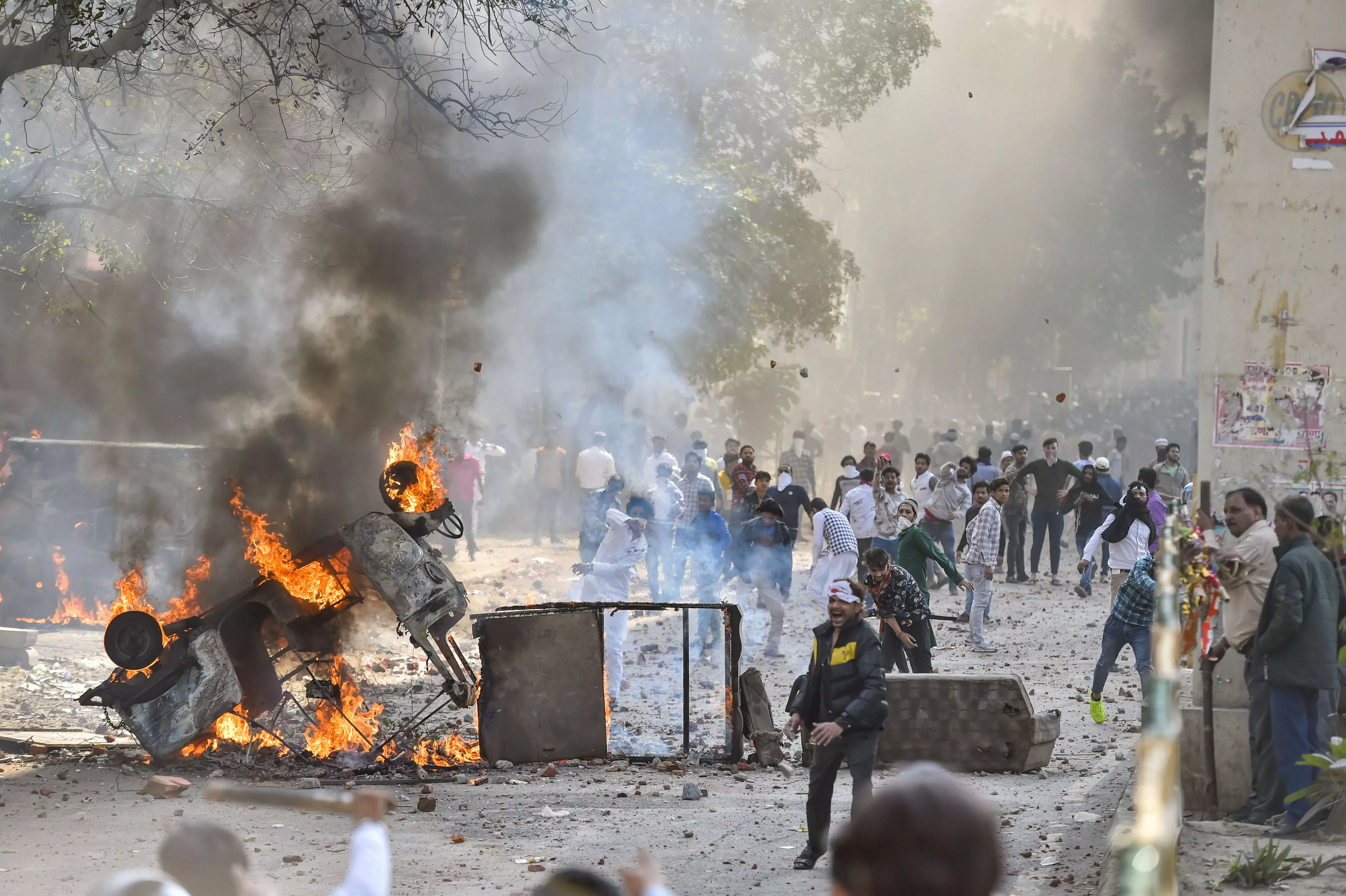
2020 Delhi riots: WhatsApp chats can’t be substantive evidence, rules court
The judge said the chats can at best be used as ‘a corroborative piece of evidence’, and pointed out to the lack of reliable witnesses while acquitting the accused

A Delhi court has ruled in five murder cases filed in relation to the 2020 northeast Delhi riots that WhatsApp chats cannot be “substantive evidence” and can at best be used as “a corroborative piece of evidence”.
Acquitting the 12 common accused in the five murder cases, the Additional Sessions Judge Pulastya Pramachala of Karkardooma court in Delhi wrote in all the five orders, “Such posts may be put in the group solely with the intention of becoming a hero in the estimation of the other members of the group. It could be a boast, without truth. Therefore, the relied-upon chats cannot be substantive evidence to show that the accused had actually killed two Muslim persons. These chats at the most could be used as a corroborative piece of evidence.”
Chats in WhatsApp group
These five cases were among nine cases filed by the police related to the murder of nine men whose bodies were discovered one week after the riots, according to a report by Indian Express.
The police had relied heavily on the chats in a WhatsApp group called “Kattar Hindu Ekta”. The same group was also mentioned in several other chargesheets filed by the police.
Also Read: 2020 Delhi riots: Court extends stay on probe against Kapil Mishra till May 7
In the chargesheet, one of the accused Lokesh Solanki allegedly wrote in the WhatsApp group, “Your brother has killed 2 Muslim men at 9 o’clock.” After interrogating Solanki, the police arrested the other persons who were subsequently accused of murdering nine men.
Of the remaining four cases, three are at the stage of final arguments, while one has ended in acquittal for the accused.
The police had relied on the same WhatsApp chats in all the nine murder cases.
‘Lack of reliable witnesses’
The court also pointed out to the lack of reliable witnesses while acquitting the accused.
In its April 30 ruling in a case of the murder of Hashim Ali, the court observed that there were no eyewitnesses and set free the 12 accused.
“They (WhatsApp chats) cannot form the sole basis for conviction due to their inherent weaknesses, and they must be supported by independent, reliable evidence,” the court said in its judgement.
Also Read: Umar Khalid gets interim bail for 7 days in 2020 Delhi riots case
The judge noted that except for one witness, no one else said they had witnessed the incident.
In a judgement on the murder of Bhure Ali, the court noted that “none of the witnesses vouched to have seen the incident of assault and murder on Bhure”.
In another case of Amin’s murder, all but one witness had turned hostile.
‘No clarity from the evidence’
The court’s March 27th judgement in the case of the murder of Hamza, the court said “it was not sure about the incident wherein Hamza (a riot victim) was killed”.
Also Read: Rahul Bhatia interview: ‘Delhi Police was unresponsive during 2020 Delhi riots’
“When there is no clarity from the evidence as to which mob had killed Hamza, then it is only a formality to say that there is no evidence on the record to show that any of the accused was a member of the culprit mob,” ruled the court.
Solanki convicted for instigating others
The judge on May 13 convicted Lokesh Solanki on charges of making statements conducing public mischief and promoting enmity.
“It is also well apparent that the intent of the messages posted by accused Lokesh was to instigate the others against Muslim persons. This act was in fact like spreading hatred for Muslim persons and to instigate others to resort to violence against them,” said the judge.
Also Read: 2020 Delhi riots: Charges framed against 25 accused in head constable death case
Of the 109 judgements passed in the 700 First Information Reports (FIRs) connected to the rioting, arson, and murder cases lodged by the police, 90 judgements have resulted in acquittals and 19 in convictions.
Fifty-three people died and more than 500 were injured in the riots.

